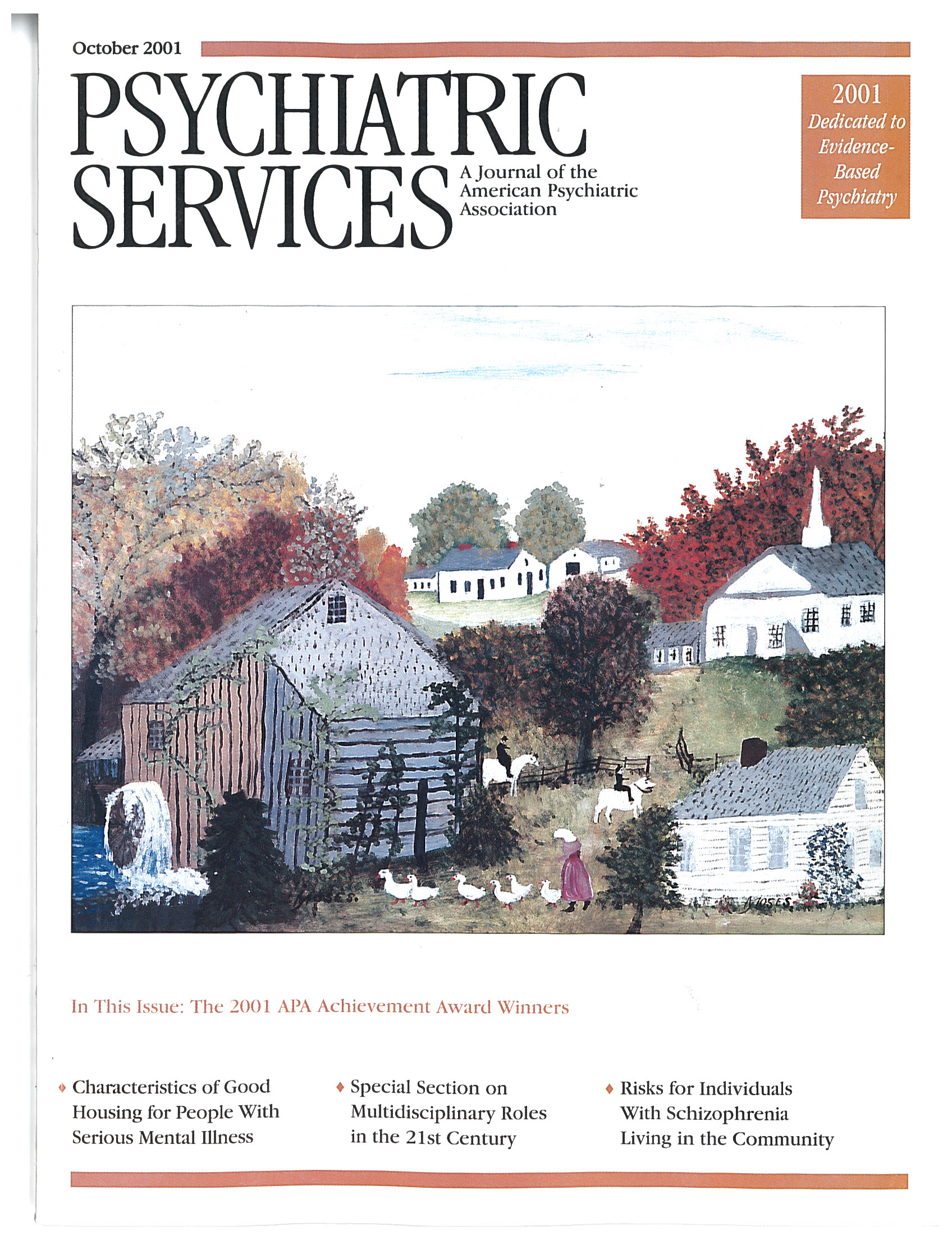A Critique of the Effectiveness of Assertive Community Treatment
In Reply: Dr. Gomory disagrees with the evidence that assertive community treatment reduces hospitalization, is no more expensive than traditional care, and receives higher client satisfaction ratings. He claims that evaluators of this approach have been biased advocates of assertive community treatment and that they have administratively prevented hospitalization—even, he implies, when it might be necessary—to present assertive community treatment in a favorable light. On the basis of our personal experience, we disagree with Dr. Gomory.
In 1987 we and our colleagues in the Veterans Affairs health care system initiated the largest multisite experimental study of assertive community treatment yet undertaken. More than 800 veterans volunteered to participate in the evaluation, which involved a two-year follow-up period. At the time we were neither experts in nor advocates for assertive community treatment, but we had been asked by VA administrators to conduct a field trial to test its potential value in our health care system. Our study showed reduced hospital use, cost savings, greater consumer satisfaction, and, in the long term, less severe symptoms and better community functioning (1). As program evaluators, neither we nor the clinicians involved in the study had administrative control over hospital admission decisions.
Since then our data and the entire assertive community treatment literature have been subject to review and debate by top VA health care administrators, who, as managers of a general health care system, have no bias in favor of any treatment other than those that are effective and efficient. After several years of review the VA Undersecretary for Health issued Directive 2000-034, which encouraged the use of this model across the VA system on the basis of the scientific evidence in its favor.
Let us not exaggerate. Assertive community treatment is not a panacea, and it takes skill and effort to implement it well. The same is true of brain or heart surgery and treatment of serious illnesses, from asthma to Zollinger-Ellison syndrome. The greater cost-effectiveness of assertive community treatment relative to standard care in appropriate populations is modest in magnitude and has not been demonstrated in every study. Implementing assertive community treatment is hard work. But after 20 years it is clear that it is a forward step that deserves to be taken when appropriate. We must not let the perfect be the enemy of the good.
Dr. Rosenheck, who is a coauthor of the article on assertive community treatment in the June issue, is director of the Veterans Affairs Northeast Program Evaluation Center in West Haven, Connecticut, where Dr. Neale is associate director. Dr. Rosenheck is also professor of psychiatry and public health at Yale Medical School.
1. Rosenheck RA, Neale MS: Cost-effectiveness of intensive psychiatric community care for high users of inpatient services. Archives of General Psychiatry 55:459-466, 1998Crossref, Medline, Google Scholar



